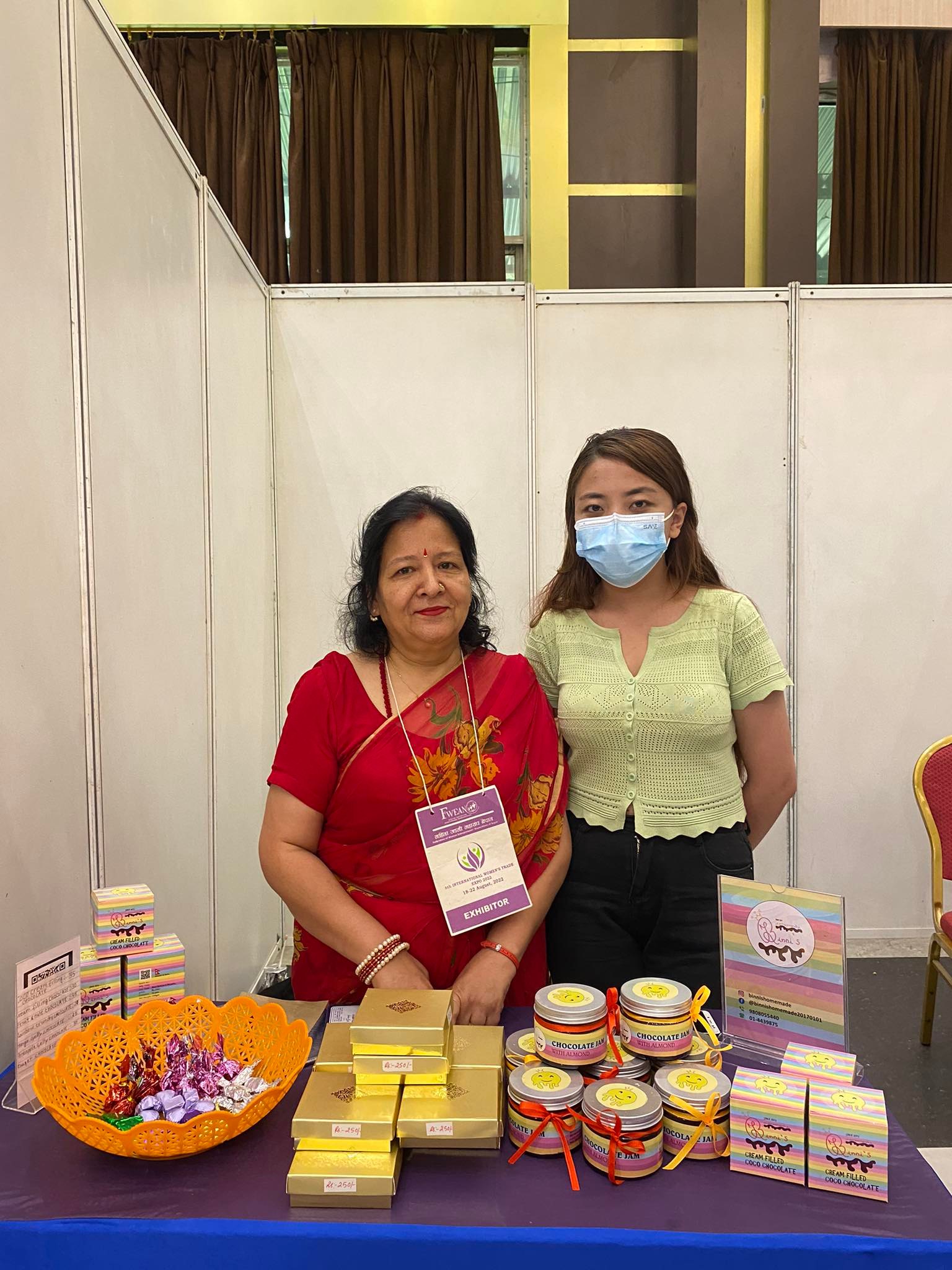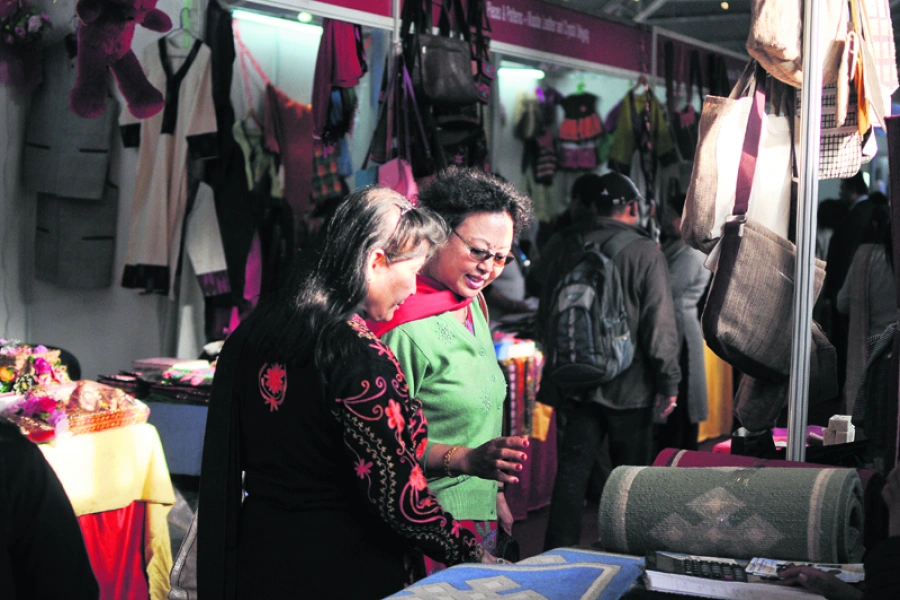KATHMANDU, August 21: “I belong to a Muslim community. It is challenging for women in our community to do business. However, I challenged the orthodox ideology and kickstarted a business on my own,” said Nazia Ali, the owner and founder of Behula Behuli attire, which is a small business in Nepalgunj. She added, “Women face hurdles in several aspects of their lives, business is no different.” She started this business seven years ago with a ray of hope and enthusiasm. Historically viewed as a man's domain, female engagement in entrepreneurship has increased recently in Nepal. The history of women's economic empowerment in Nepal cannot be fully understood by focusing solely on the economic aspect. The socio-political environment also creates the framework for women's economic empowerment because top-down policies and programs frequently support or obstruct it. Sub-article (5) under Article (38) of the Constitution of Nepal 2015 says, “Women shall have the right to obtain special opportunity in education, health, employment and social security, on the basis of positive discrimination.” However, in reality, this is rarely the case.
According to the report of the Central Bureau of Statistics (CBS) of 2019, 29.8 percent of the enterprises in the country are owned by women. This means nearly one-third of Nepal's businesses are owned by women. The number of women entrepreneurs in Nepal is increasing yearly. Women have to struggle to prove that they are no less than men. Similarly, despite the COVID-19 pandemic which had a drastic impact on women-led businesses, various women enterprises and organizations have played a great role to overcome the obstacles emotionally as well as financially and by providing skill-based training to women to become self-reliant and independent and continue their entrepreneurship. Amid difficulties and challenges to become a woman entrepreneur and run small to big business, there are many inspiring stories of women.
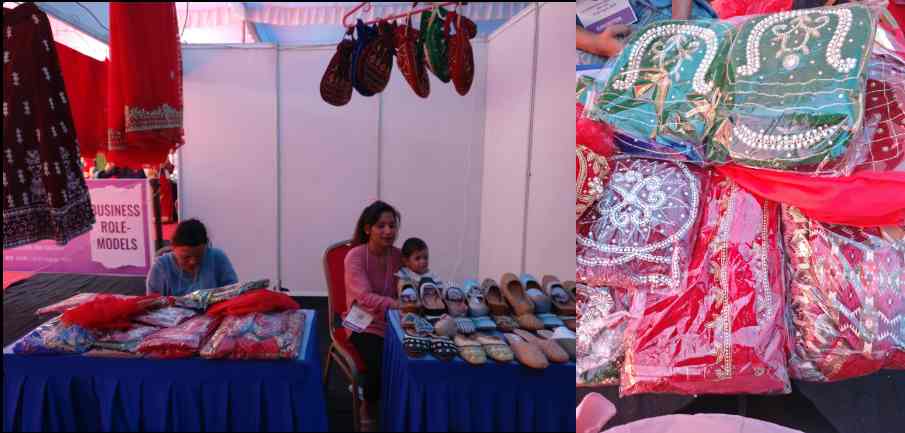
Ali started business with a velvet embroidery of Vermilion covering (sindoor chopne), by buying velvet for Rs 1000 to understand the market view. Then her products became demandable, customers began to like her products. Then, she carried on with her business with Rs 35,000 investment. She says, “Now I have a showroom and a factory and I pay salaries to 20 women staff for one product around Rs 1000 to 1500 per day. But the coronavirus pandemic had hindered the job of all small business owned women.” Her business mainly focuses on Dulha-Dulhai (Bride and Groom) dress, party wear saree, handwork suit, garments- Dulha attire like Dhaka set-Banarasi, brocquet, sandals, ghumto. Likewise, there are other products of men and women’s wear such as dupatta, gown, kurtha surwal. Her supply priority is in the wholesale market, but meanwhile retailers also visit her after viewing the products on the website.
Let women entrepreneurs rise

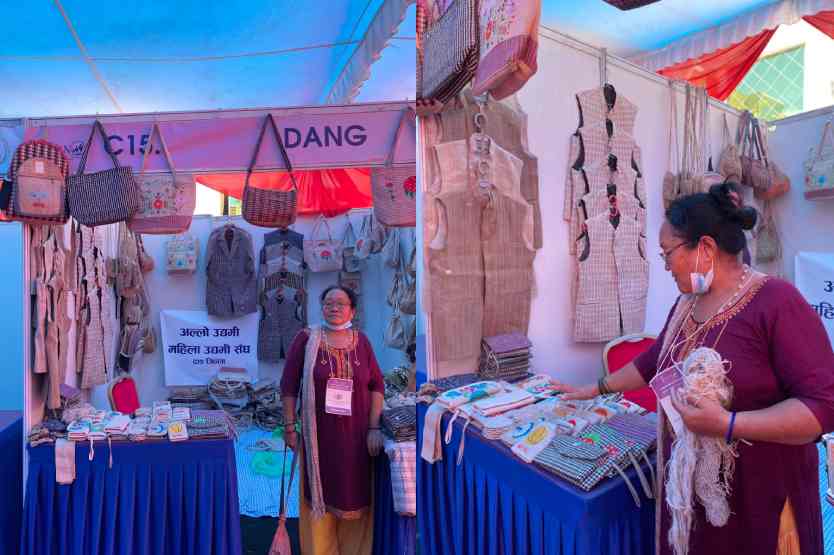
Prem Kumari Pun, the owner of Allo Dhago Udhyog, Ghorahi, Dang, is another woman entrepreneur. She says, “I acquired the concept of this cottage industry from my mother.” The industry derives its name from a common plant ‘Allo’ (Girardinia diversifolia) that is widespread in the jungle. This plant is abundantly found in moist areas of Nepal and has various significance. The industry uses this plant to manufacture natural fibers which are later used to create durable and eco-friendly readymade clothes and cloth-made accessories. Pun says that creating clothes from Allo has been a long-born tradition of Magar Culture in Nepal. This cottage industry is all about blending tradition with commerce. Pun and her husband Dev Prasad Pun started running this industry in 2005 on a small scale employing the women who had undergone the long civil war and domestic violence and wanted to become self-dependent.
Pun says, “This industry is run by a lot of people. There are around 35-36 workers working in this industry. These products need to be produced in masses. But, COVID-19 has greatly impacted our business. Because exhibitions are our market,we go from Mechi in the east to Mahakali in the west where our business flourishes, but the pandemic compelled us to stay in our house. It affected production as well as sales. After COVID-19, we participated in the expo. Before this, we participated in the event organized by Nepal Chamber of Commerce in Bhrikuti Mandap, but the business is not like before. Due to COVID-19, even consumers didn’t have money to purchase our products. Our business has been adversely impacted by the pandemic.”
This industry has created job opportunities for a lot of people. There is a group that collects the Allo from the jungle which is a plant used to manufacture natural fibers which is later used to create durable and eco-friendly readymade clothes and clothings accessories. Another group processes it. It needs to be cooked in ash water, which is done by another group of people. Then, it is cleaned, and dried. Then it is dusted off after which, it is weaved to make a cloth out of it.
Pun says that struggles start with the beginning of the business itself. She started this industry with an initial startup of around Rs 800,000. She says that people take samples of the products to different countries although they haven’t exported the products themselves. She shares, “We went to a town in China before the pandemic. People stored our products there and we sold a few of them. We also went to India carrying a few products, yet we haven’t exported our products." Similarly, Reena Adkhkari, who runs a micro business of Khasto (Pashmina) says, “I got training from Mahila Udyami Mahasangh and then got the idea of initiating the business of Khasto.” Now, it has been one year since she started her business. She sells two meters long Pashmina Shawl for prices ranging from Rs 1000 to Rs 1200, according to the design and size.
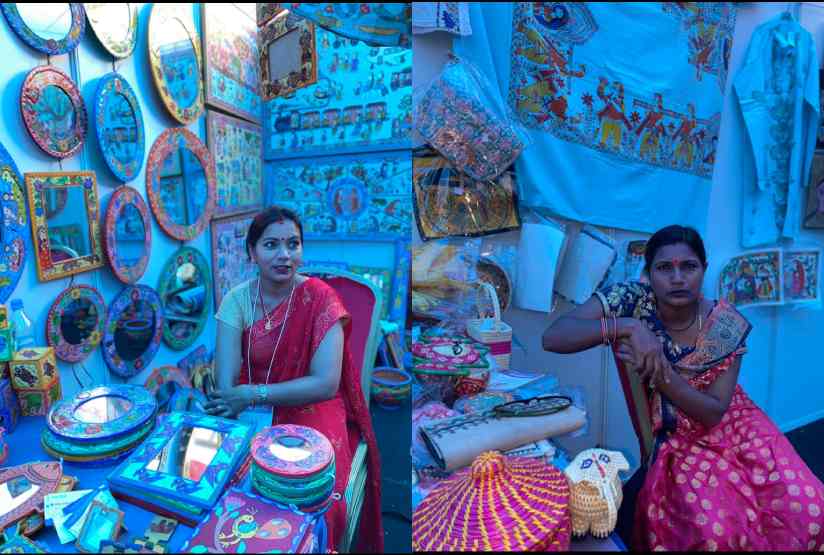
Sarita Devi Mandal, the co-owner of Mithila Nari Hastakala Centre, Janakpurdham, says, “Due to the COVID-19 pandemic, my business had come to a halt. It has yet to recover. It has been hard for both me and my husband to continue our business for the past three years. I hope that we can retrieve our customers .” Mandal has been taking care of her husband’s business for 18 years now. Her husband had been engaging in this business of mithila handicrafts for 36 years. The products of Mandal include colorful hand-painted mirrors, with frames decorated with elephants or fish, Madhubani art paintings. Each handicraft’s price is labeled from RS 15,00, Rs 3,000 to Rs 10,000 as per the small and big product. She now has a branch in Sano Thimi, Bhaktapur as well.
Deepa Kumari Karn, the proprietor of Deepa Mithila Art Gallery, shared, “The COVID-19 pandemic badly affected my business and I had to bear a great loss. I seek an opportunity to reach my customers for my handmade products and expand networking to promote Mithila Art.” According to Karn, it takes her a couple of hours to draw an A4 sized art and she sells them for an average of Rs 2000.
Trishna Bista, CEO of Binni's Homemade Chocolates, says that she started her business five years ago, along with her daughters Tejashwi Bista, founder of the company and Tripti Bista. She mentioned she had no such difficulties while starting her business, but due to COVID, her business severely got affected. She said, "Our boxes and wrappers are imported from outside, so during COVID when the borders were closed we were not able to import, which had an adverse effect on our business". "Our chocolates used to be sold at the International airport, but stopped owing to the pandemic," she added. Binni’s Homemade sells different varieties of chocolates. Those include Coco-a-fruit and nut chocolate, coconut and cranberries, cocoa coconut fruit and nuts, Rs 200 per packet. Similarly, another product of Bista family consists of Filled Dark Chocolates, Cream Filled Dark Fantasy, Coco Filled Delight of Rs 250. Fruit and nut chocolate’s price is labeled Rs 200 for a small box and Rs 350 for a big box. Likewise, a regular box costs Rs 150 for a small box and Rs 300 for a big box. In addition to that, the company also sells pickles like sesame pickle, chili masala pickle and chocolate jams for prices ranging from Rs 100 to Rs 200. They also reach their customers through Farmers Market.
Although businesses may gradually recover with the covid-19 pandemic gradually fading away, challenges are likely to persist for women entrepreneurs which they are concerned about. Moreover, as there is still behavioral and gender discrimination against women, the traditional patriarchal values, beliefs, culture, violence, women are facing hurdles to engage in business freely. In this regard, only the efforts from women organizations, enterprises and expos are not enough. Policymakers need to adopt policies to enable small business. It is high time the government took steps toward investing government services into women made businesses, making provisions for start-up women entrepreneurs and providing a platform and boosting the country’s economy as a whole.
